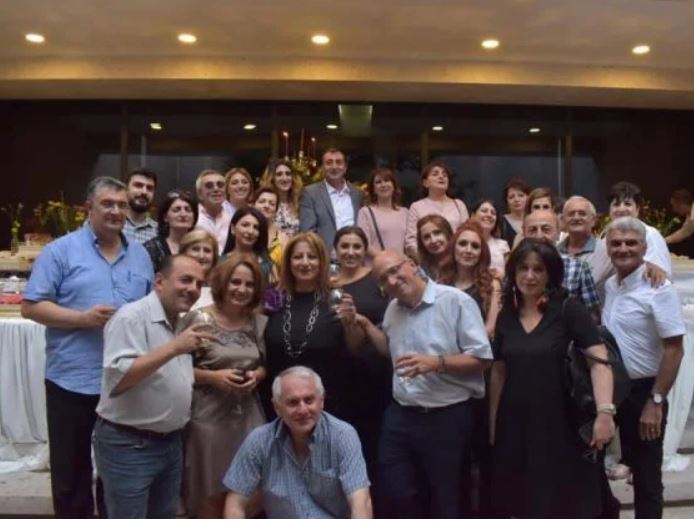August 1st is Aravot Daily’s 27th anniversary. Since I have been its editor-in-chief for 26.5 of those 27 years, I want to make several observations about the reasons for our longevity.
I am referring to the principles that have crystallized over this rather long period of time. In general, I talked about these principles with Vano Siradeghyan in October 1994, before I became the newspaper’s editor.
I think those who work or have ever worked for Aravot Daily (and we are talking about a few dozen people) will confirm that I have never instructed any journalists to “curse this person” the opposite- “praise them to the heavens.” Because we know the difference between journalism and propaganda. In fact, it is a very simple task.
Suppose I have a pen in my hand now, and I can carry myself in two ways. 1/ I can tell you where I bought the pen, what color it is, what type it is, what company made it, and so on. 2 / I can try that pen on you, dear reader, sell it, or the opposite- convince you that you will never buy that pen. In the first case, I am engaged in journalism; in the second case, I am engaged in propaganda.
Another question arises here: why should someone be engaged in journalism? Allow me to give a more general answer, and let it not sound too pompous. Anything, from repairing shoes to flying into space, is only worthwhile if it contributes, albeit in a small way, to making your surroundings, your place of residence, your country, and the whole world better. If the goals are like that instead of the lavish life, the power, self-affirmation, and sowing evil and hatred by hurting others, if the goals are clear, then any business will move forward.
And “moving forward” does not mean wealth or glory- it simply refers to carrying out your mission.
For journalism itself, I think the most important thing is open-mindedness and tolerance, moderation, and refraining from extremes. There are no monsters and angels in the world, including in politics, but in all, even the darkest souls, if desired, one can see the light, the same in the most tragic situation.
We do not want to talk only to people who are our supporters, in which case we would be like priests preaching from the pulpit of the church. Those we interview are also those who strongly disagree with us. Fortunately, websites and social platforms provide an opportunity for those who disagree to express themselves. Yes, there are people who are angry and unrestrained. We can advise them to think about their own health (including physical).
I have already mentioned that several dozens of people work at Aravot whom I am connected to based on mutual love and warmth. I am deeply grateful to them for those emotions.
Aram Abrahamyan





















































